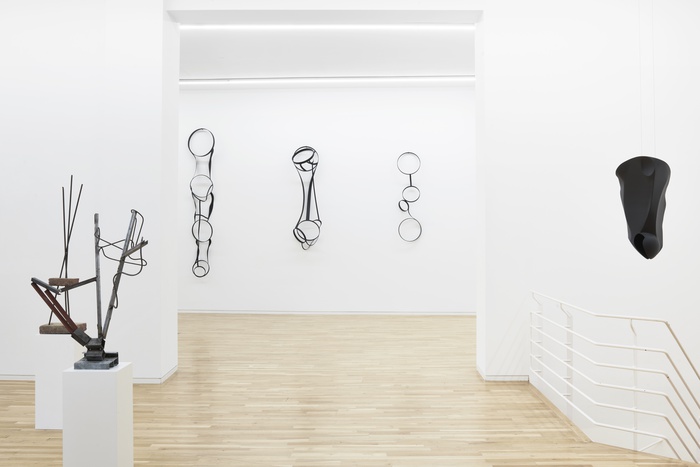
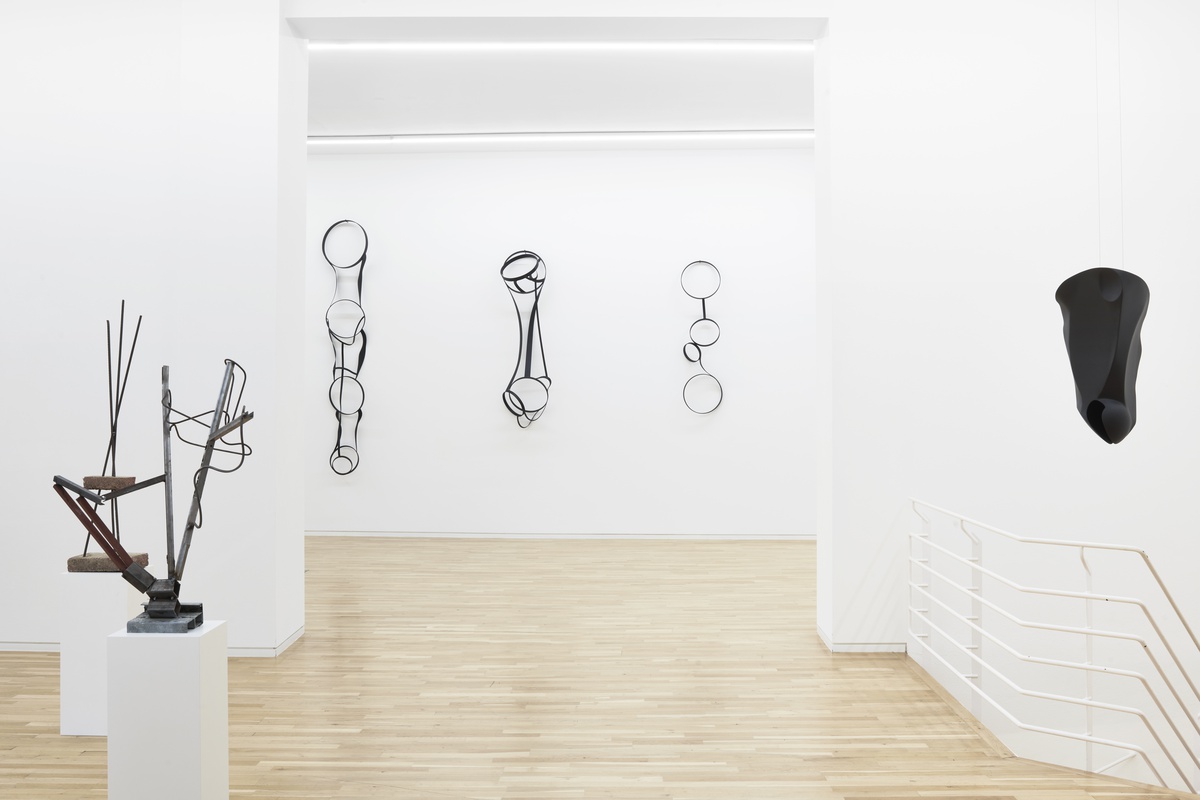
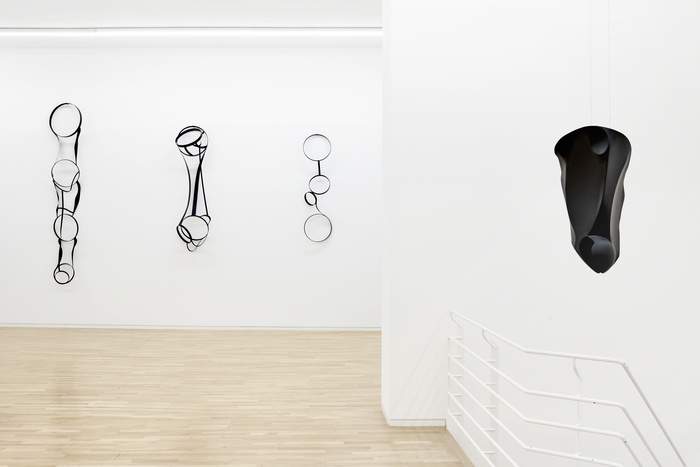
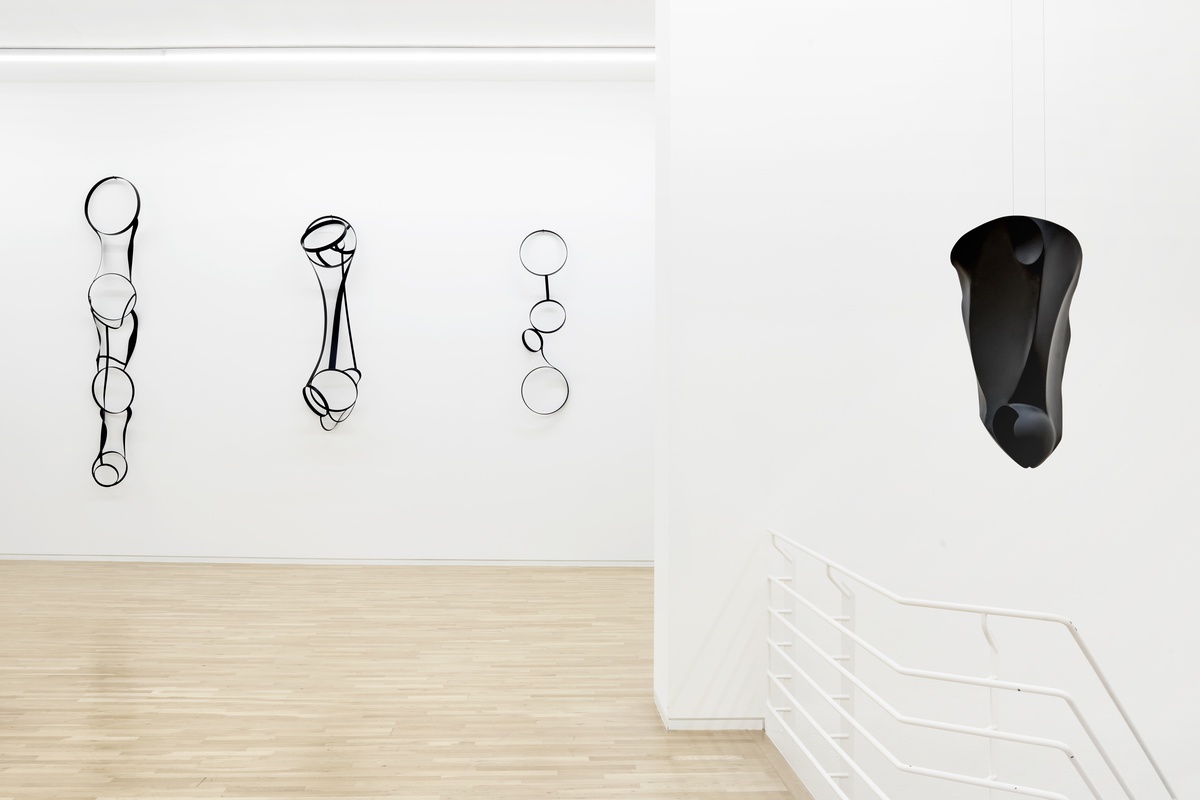
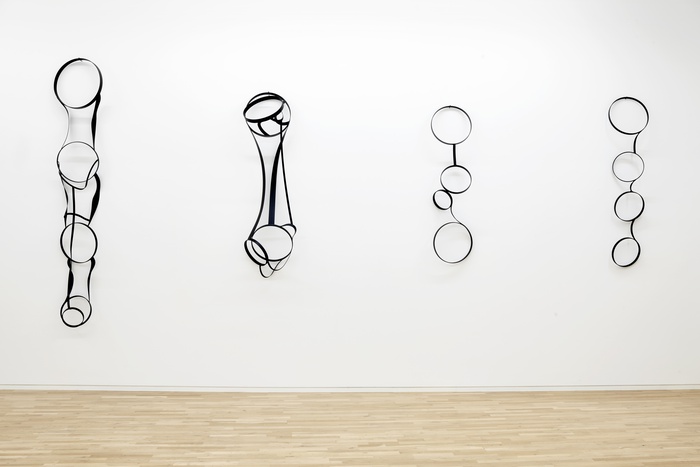
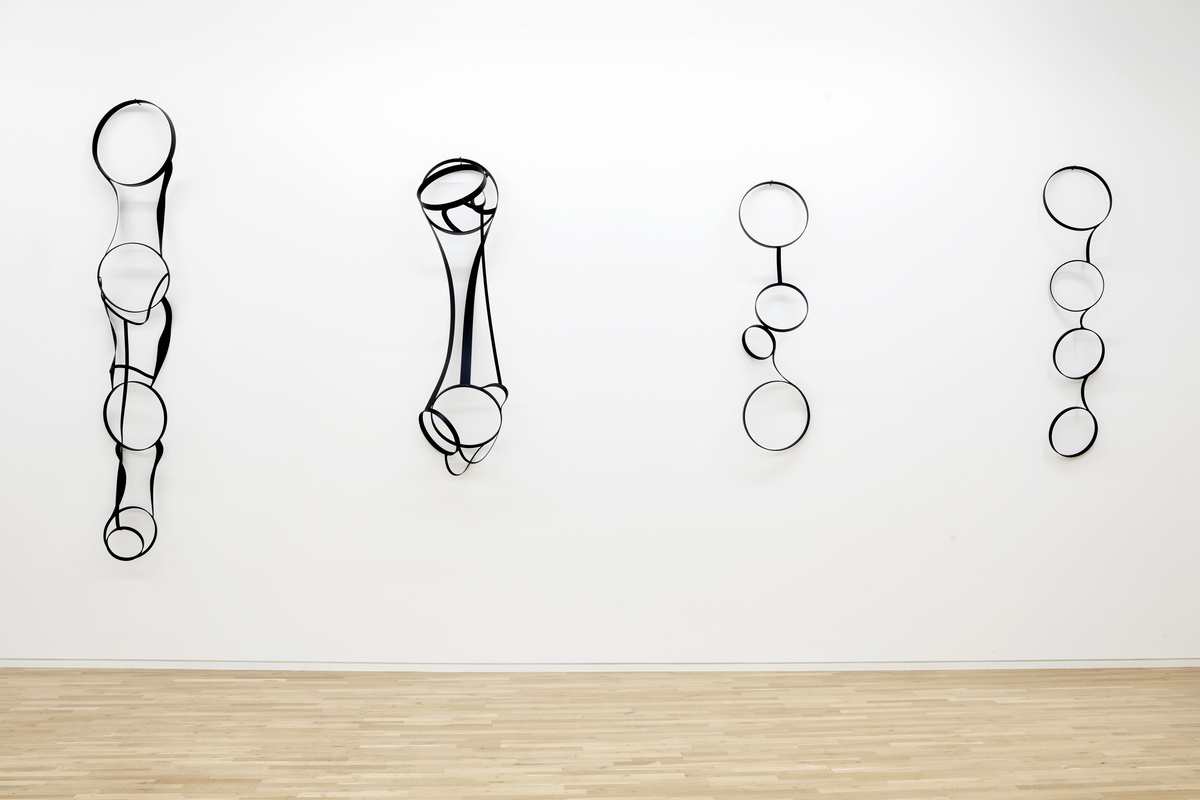
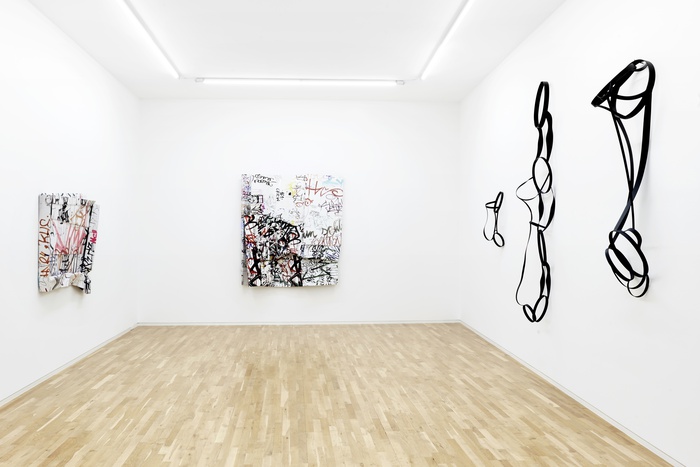
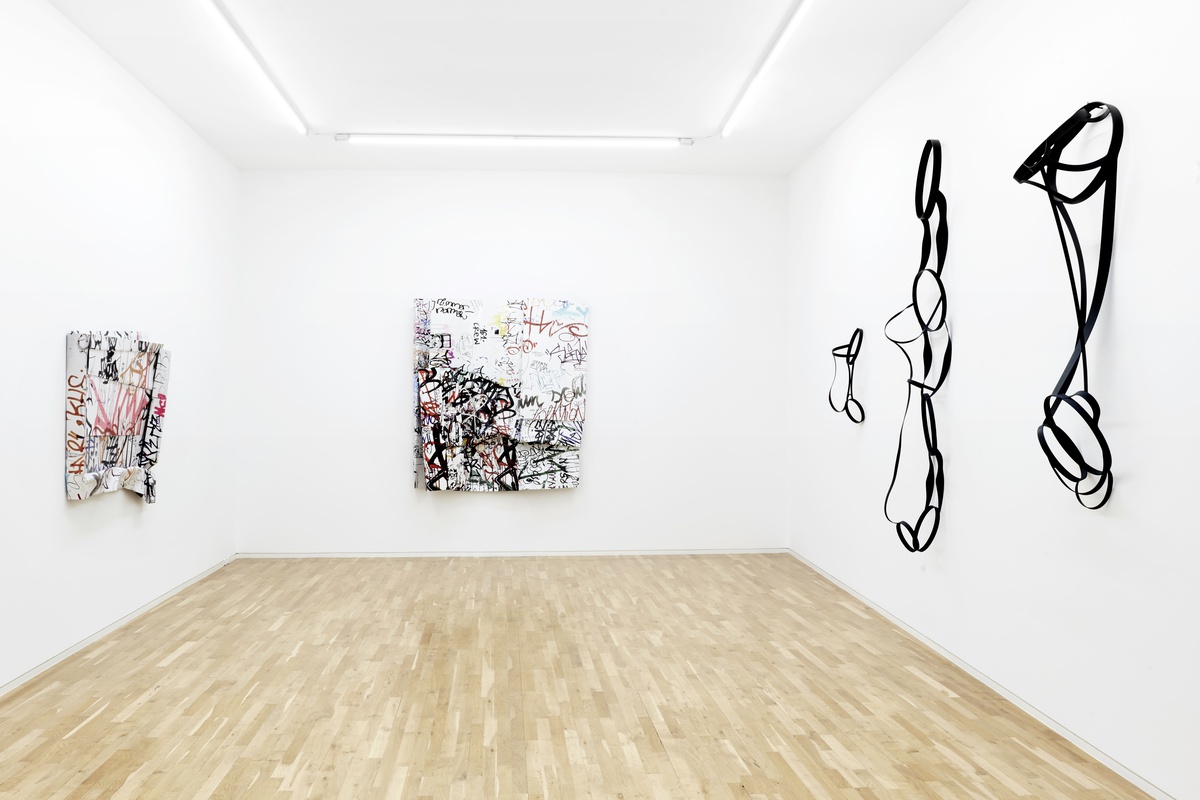
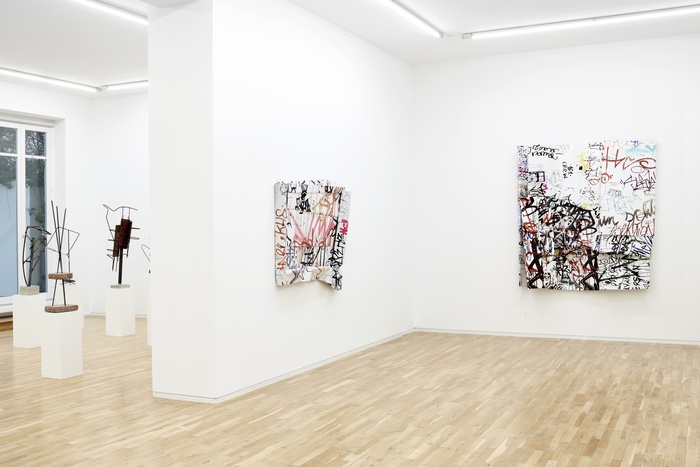
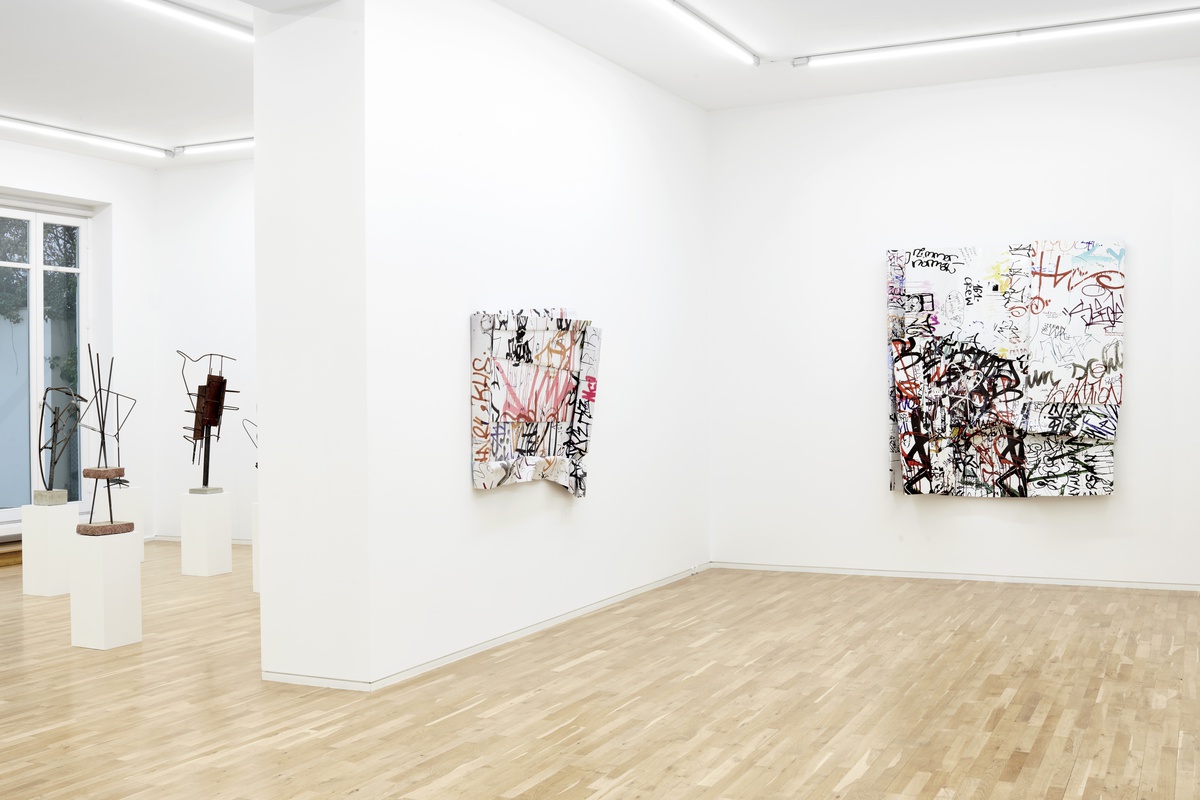
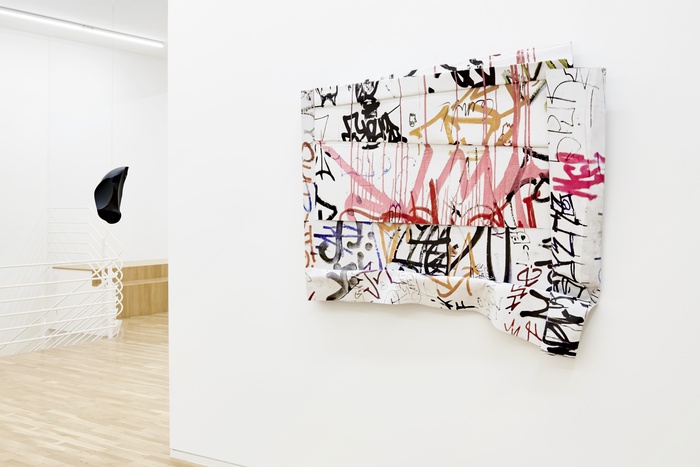
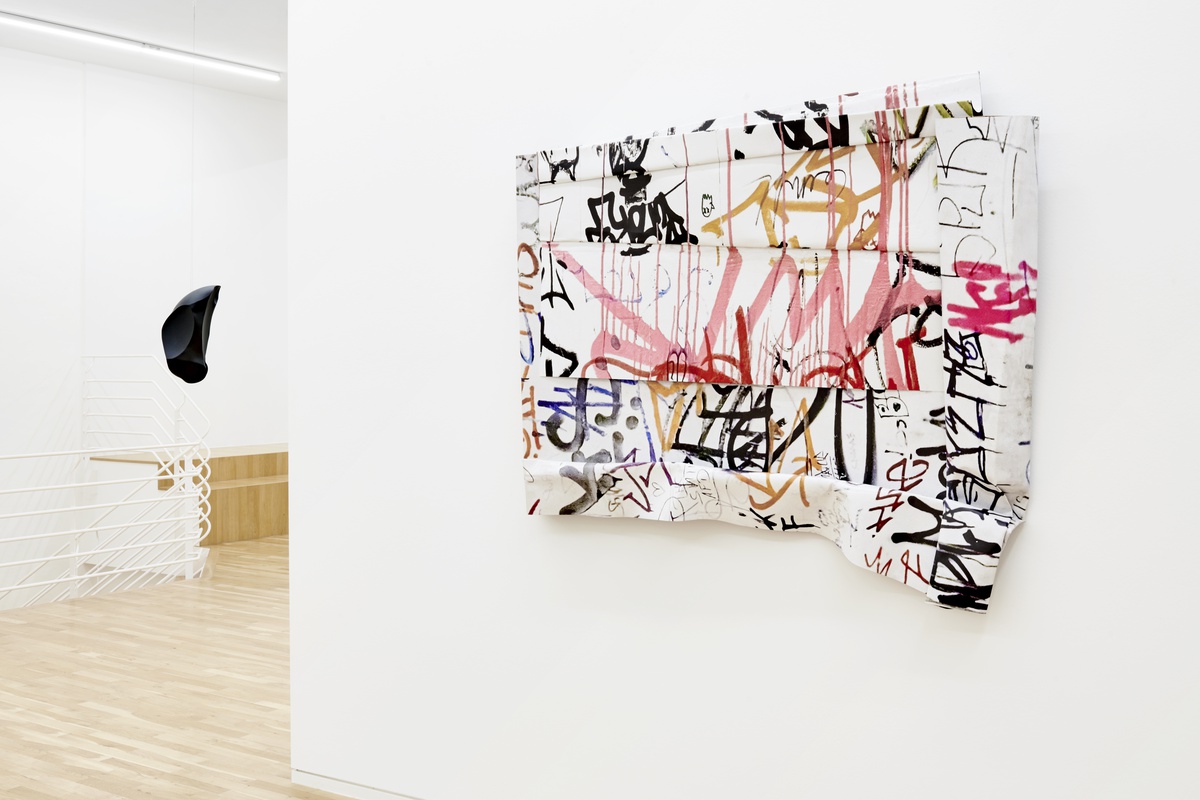
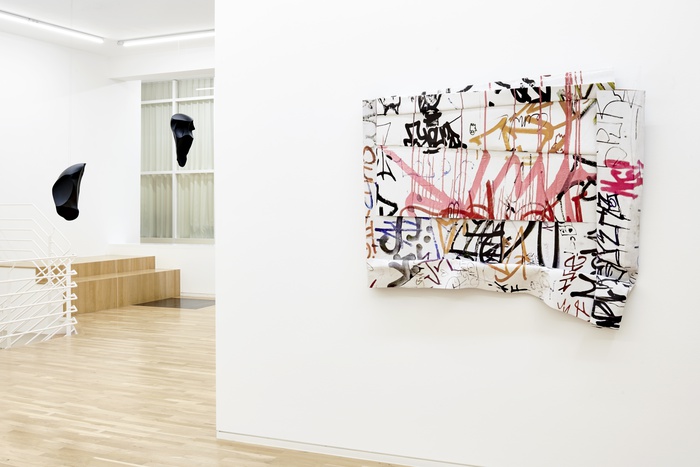
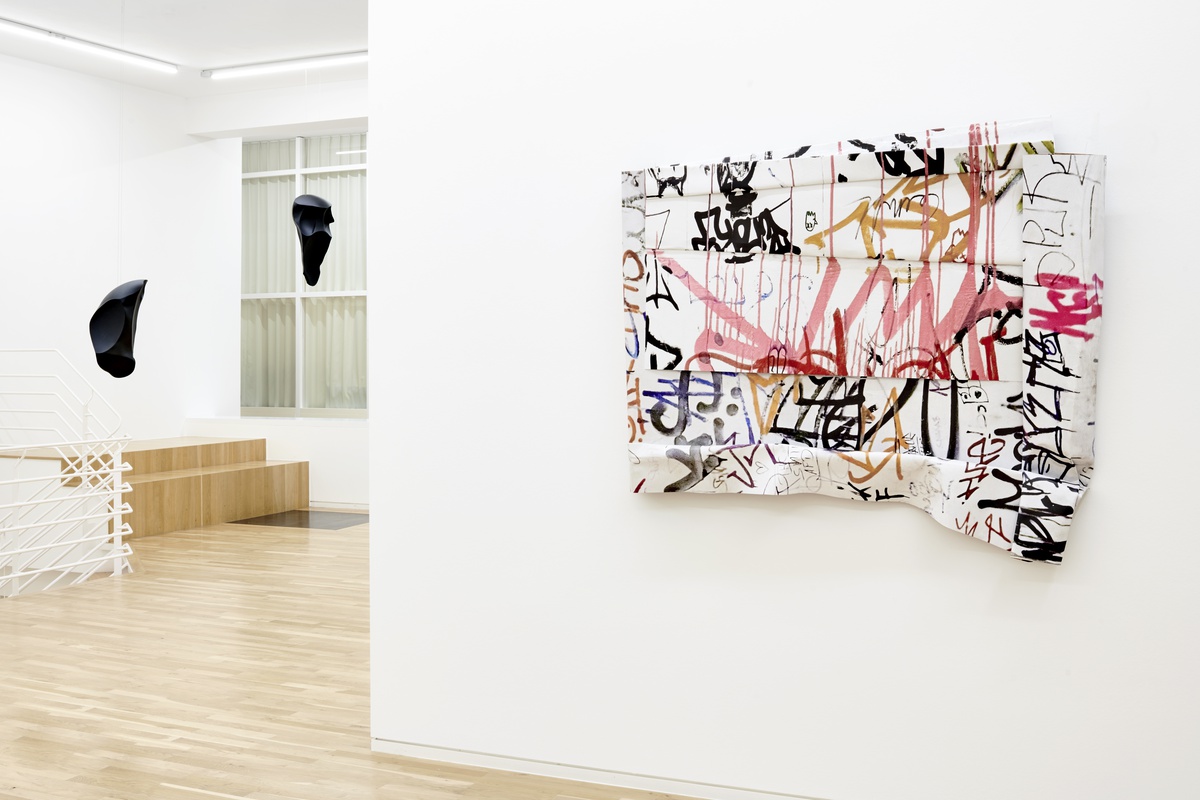
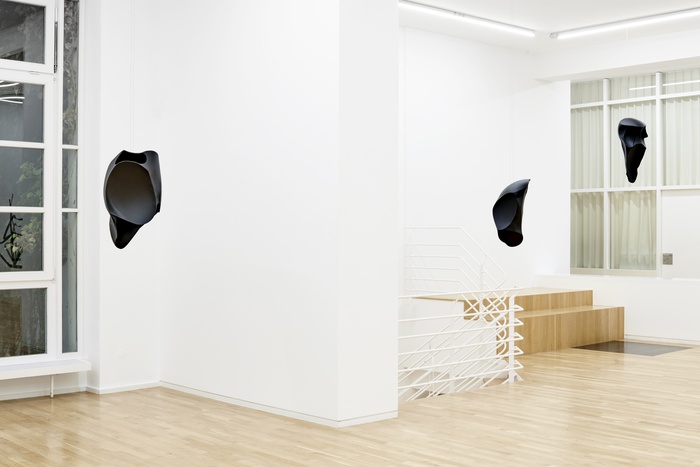
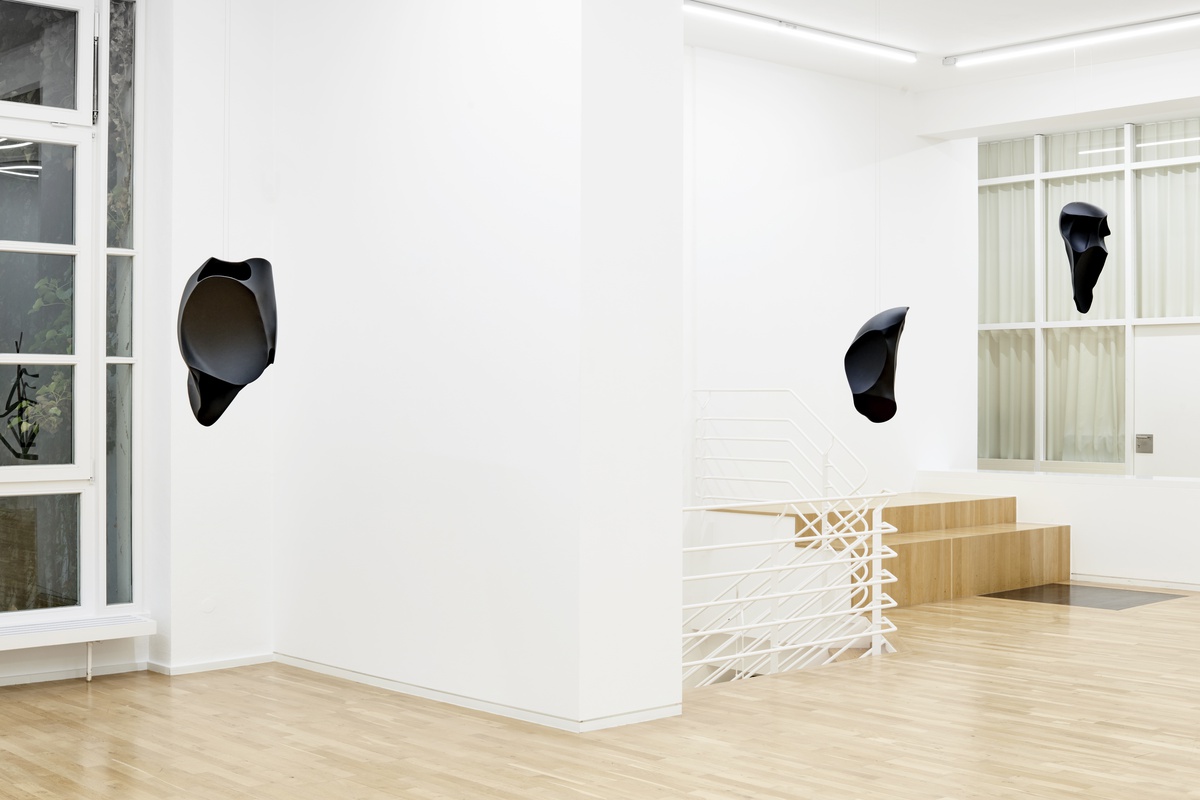
Installation view, Jahn und Jahn München, 2024
Olaf Metzel and Rui Chafes: Metal and material life
»In the beginning, there was metal. Amidst the apparent dissension between their practices and languages—and before probing into other hidden alliances—metal emerges as the primordial material linking German artist Olaf Metzel and Portuguese artist Rui Chafes, the two figures placed in dialogue in this exhibition.
Olaf Metzel, influenced by the anarchist movement and the counterculture of squatting, has been a sociologically rigorous observer, a producer of large-scale sculptures, and a daring "agent provocateur" in contemporary German art since the early 1980s. Rui Chafes, educated in the aftermath of the 1974 revolution that established democracy in Portugal and influenced by the nonchalance of post-punk, is a self-confessed Germanophile who studied under Gerhard Merz at the Düsseldorf Art Academy between 1991 and 1993. He has since become a renowned artist celebrated for the aesthetic intransigence of his work, which now holds a central place in Portuguese culture.
Bringing together two seemingly distant bodies of work in terms of their immediate motifs and the tone of their discourses, this exhibition clarifies the connection between them. Produced at the crossroads of the European "Mittelland" and driven by a rebellious, reactive, combative, and incendiary impulse, Olaf Metzel's work encounters a circumspect, sharply contemplative temperament, invariably hovering around the abyss and death, in the sculpture of Rui Chafes, born in the continent's "finisterra". Metzel's struggle rhymes with Chafes's mourning. Both sculptors find common ground in the eulogy of the beauty of loss (Metzel invoking debris, waste, and scrap, whereas Chafes suggests instruments of restraint, prostheses, and calcinated anatomical fragments), while simultaneously embodying the same potential organic or vernacular energy that courses through destruction, driven by a defiant vitality against the inevitability of facts.
We are then faced with two bodies of work which, whilst formally distinct, resemble one another in the ethical radicality that has kept them immune to fluctuations of taste, prevailing aesthetic trends, and market expectations over the years. Instead, they have developed a contrario as they walked the tightrope of a fundamental solitude, sharing an unwavering belief in the transformative power of art and its capacity to affect the viewer, shaking them from sensory torpor, and spurring them to understand and confront the voraciousness of contemporary societies. […]«
Excerpt from the essay by João Sousa Cardoso from the publication accompanying the exhibition at Jahn und Jahn in Munich. English translation by Diogo Montenegro in collaboration with Dominic Zugai.
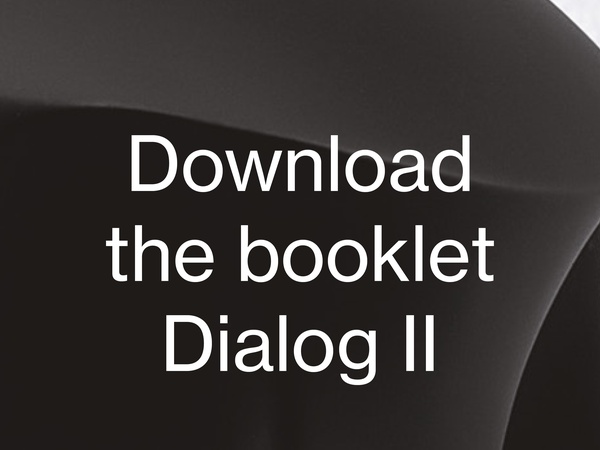
Chafes-Metzel_Booklet_II.pdf (1.0 MB)